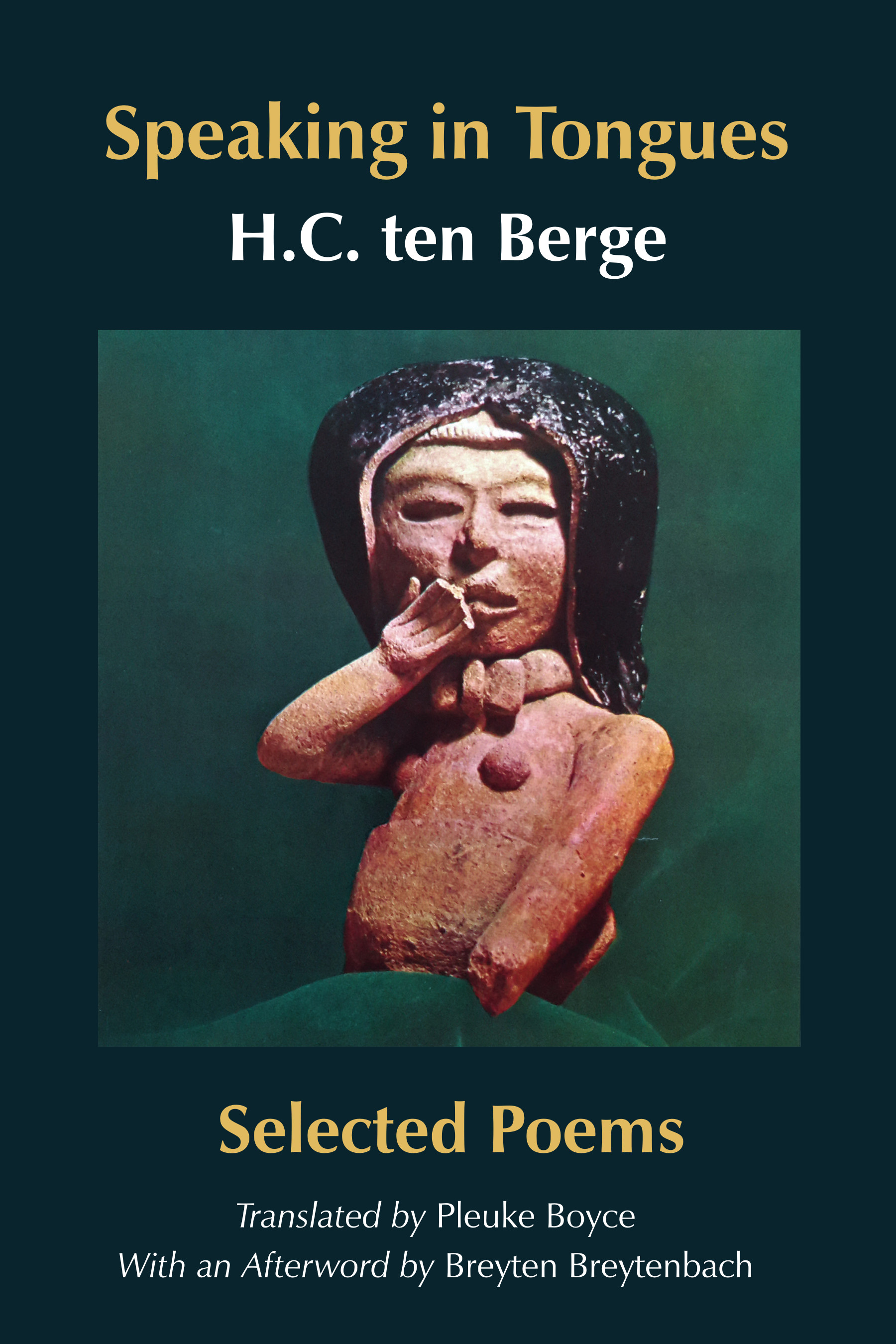H.C. ten Berge
Translated by Pleuke Boyce
Speaking in Tongues: Selected Poems

Speaking in Tongues should come as a welcome surprise to English-language readers, as it not only opens new doors, but also presents exciting technical challenges. H.C. ten Berge is a master of many genres, but poetry informs all of his writing. In this generous new selection of poems and poem-sequences translated into English—his first publication in book form in North America—we follow the exciting trajectory of the poet from his initial collection, Poolsneeuw (Polar Snow) in 1964, to his most recent, In tongen spreken, which came out in 2020. His poetry is nourished and influenced not only by the contemporary world, but also by the European Middle Ages and earlier civilizations. A major voice in The Netherlands, Ten Berge has won many prizes and distinctions, including the prestigious P.C. Hooft Award (2006), the jury celebrating that he “has opened Dutch poetry to worlds that until then had gone unnoticed.”
Reading H. C. ten Berge is to be in the presence of a mind completely alive. His work is taut, hungry, both nervy and unnerving. It is a gift to have his questing, intellectually restless poems, his imagination tutored by the icy and irreducible landscapes of northern Europe and the violence of the twentieth century, in our hands in this fresh, vivid English translation.
~ Robert Hass, former U.S. Poet LaureateHans ten Berge, shape-shifter extraordinaire, writes in the spirit of ethnopoetics, where the line between dream and reality becomes blurred. His poetry has been influenced by Pound, the mystics, the rebellious Goliard poets of the Middle Ages, and the geo-poetics of Kenneth White, but is uniquely his own. Its expeditions into other times, voices, cultures and frames of mind take us to spiritual and linguistic regions where, to quote Jerome Rothenberg, “old and new are always changing places.”
~ Gary Geddes, author of The Resumption of Play and What Does a House Want?
H.C. ten Berge was born in 1938 in Alkmaar, the Netherlands. One of Holland’s most important poets, he is the author of a large body of work that includes not only poetry but also novels, novellas, essays and translations. Apart from translating from modern languages, he collected and translated poetry and myths of the Aztecs, Inuit, Eastern Siberian Peoples and First Nations of the Pacific Northwest. He has received many awards for his work, including the most important and prestigious oeuvre prize in the Netherlands, the P.C. Hooft Award.
Pleuke Boyce was born and grew up in the Netherlands and now lives on
Vancouver Island. She received the James S. Holmes Award from the Translation
Center at Columbia University for her translations of work by Dutch poet
Gerrit Achterberg: But this Land has no End - Selected Poems.
Her translations into Dutch include seven books by Alice Munro.
ISBN
978-1-77171-416-7
Poetry
167 Pages
6 x 9
$24.95
Now Available
customers
customers
customers